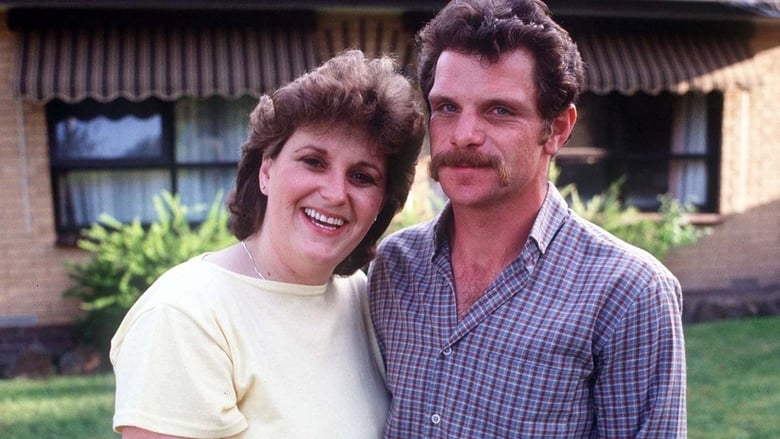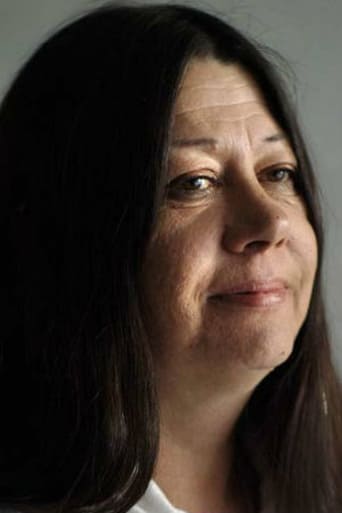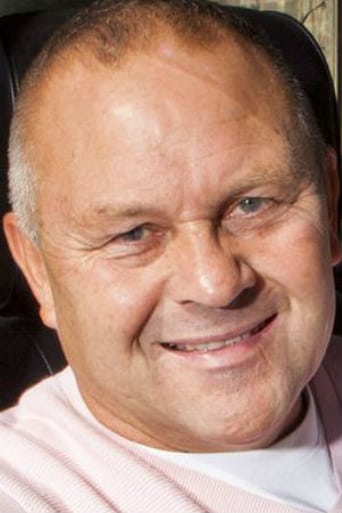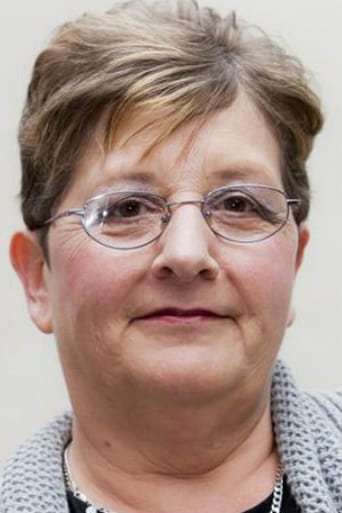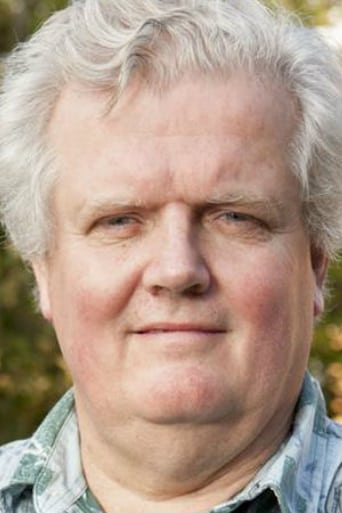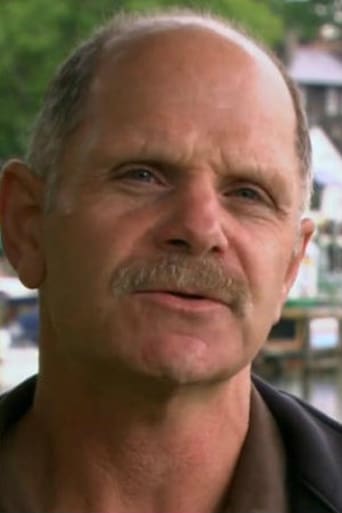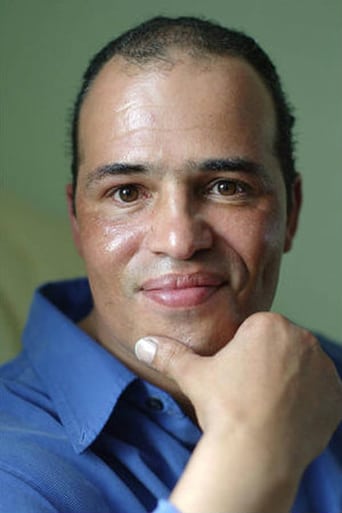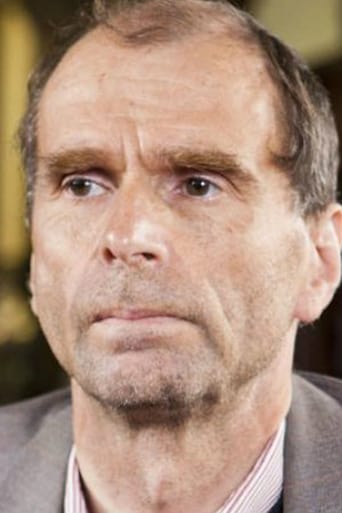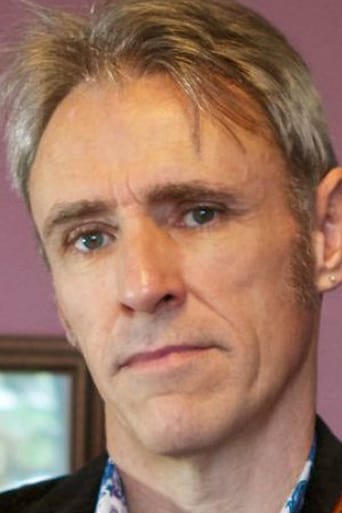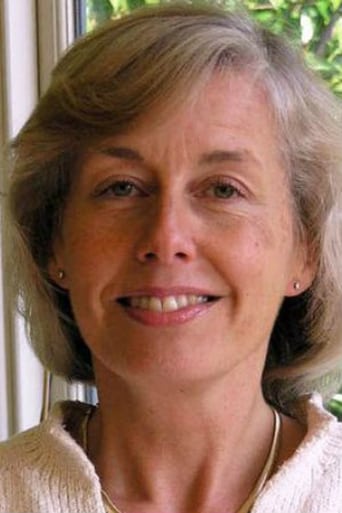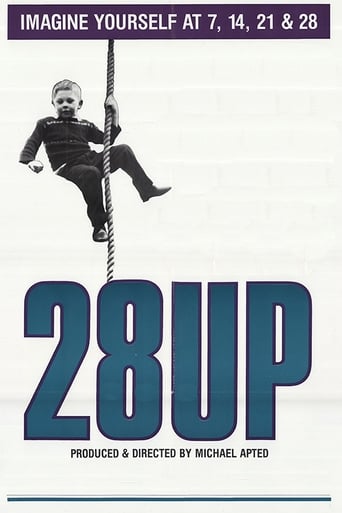
Just two years away from turning 30, participants in Michael Apted's documentary series are facing serious questions of identity and purpose, wondering whether they've found their place in the world.
Similar titles
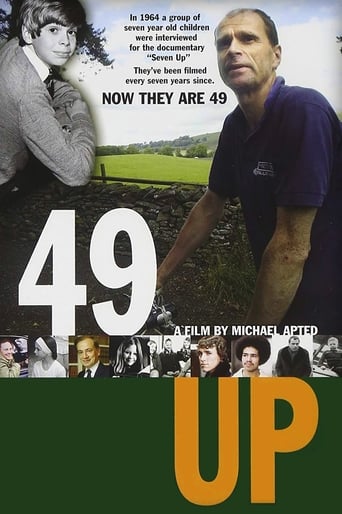

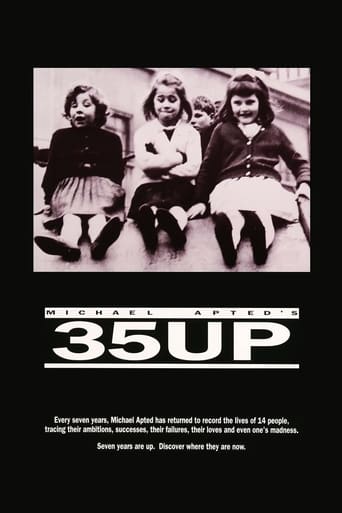
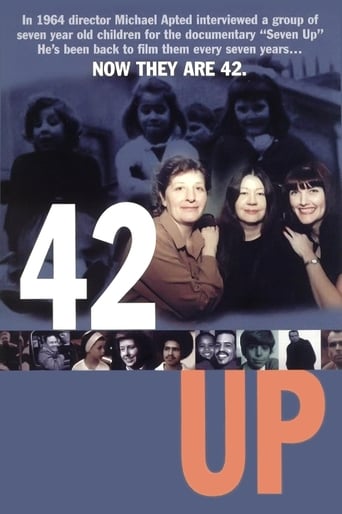
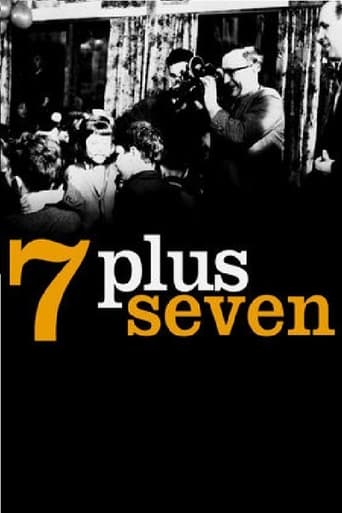
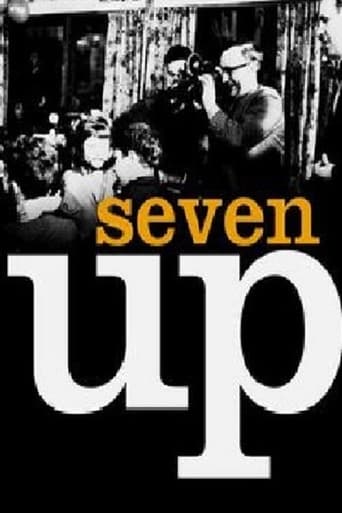
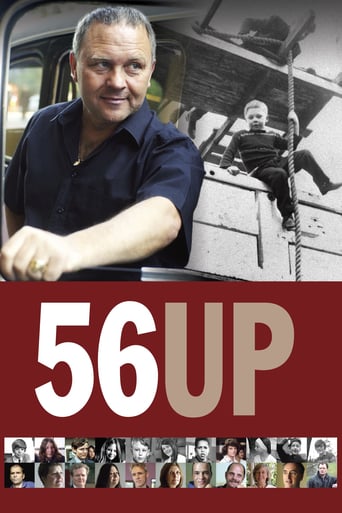
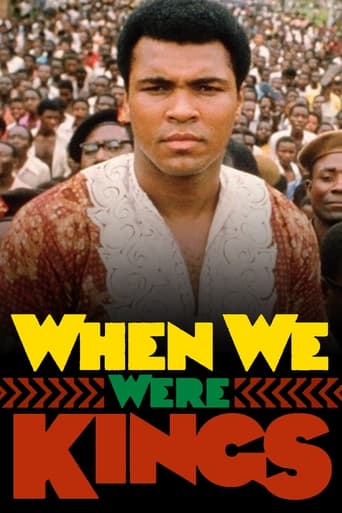

Reviews
If you don't like this, we can't be friends.
A movie that not only functions as a solid scarefest but a razor-sharp satire.
A great movie, one of the best of this year. There was a bit of confusion at one point in the plot, but nothing serious.
Strong acting helps the film overcome an uncertain premise and create characters that hold our attention absolutely.
The highlights here are Nicholas and his relocation to Wisconsin and Neil continuing down the spiral of depression. Other than that, most of the subjects have just settled into comfortable, and somewhat mundane, lives. I was disappointed not to get more of John's douchiness, but he declined to be interviewed, as did one of the other rich (but far less douchey) kids. It's amusing to see the way Apted keeps trying to badger his subjects into expressing some kind of rage against the upper class, yet they're having no part of his agenda. They all (with the exception of Neil) seem quite content with their standing. I've decided to soldier on with the series, mostly because I've already invested so much in it, but I also remain curious about a few of the subjects.
The 'Up Series' represents one of the most fascinating and unusual uses of film in cinema history - a documentary life-long chronicle of the lives of 14 people starting at 7 years old, revisiting them every seven years through age 49 (so far). While I could quibble, wishing for a bit more depth here and there (especially with the women, where there's a bit too much emphasis on love and marriage at the expense of all else), it's really an astounding, moving, frightening and uplifting document. There's no way to watch this remarkable series of films without reflecting deeply on one's own life, and how you have changed (and stayed the same) over your own lifetime. While Michael Aped deserves every bit of credit he's received for this amazing piece of cultural anthropology, it's important to note this first film, 7 Up,was actually directed by Paul Almond, and Apted was a that point a researcher for the project.
I got hooked on these. The first one was only mildly interesting, a sort of necessary toll. Everything of interest in it is repeated later, but it was a solid reference for the editions that followed. The next two editions were absolutely captivating.There's something about that period before you become an adult, a time when switches could flip, butterflies can affect. The conceit of the series is that the British class system is deterministic. So the game in the first films is in engaging with these people in support. We send wishes into the ether, attempting to reach across space and time. The don't grow up until we see them and when they are restricted, it is because of constraints we allow.Any failure at this stage, any flaw in character is in part our responsibility. So we experience a blizzard of minor successes and defeats. Each person is a collector of urges, each a measure of a successful or failed society. These two (14 up and 21 up) were engaging films.But by now, these are genuine adults. What errors in formation that could be influenced by our surrogate parenting have already set. Now they are simply beings. The only mildly engaging of these souls is Neil, a bum on the dole. Everyone else is no more now than someone ordinary that you encounter in life, each on their own path, working on narrow futures beyond our control.The major difference is that some have some things to claim over the others. Different things, but each presented in comparison. I wonder if I can stand the investment of what comes next.Following this, you are following Apted as he grows in skill, insight. What he looks for as signs of maturity. I hope he is up to the task. His other films seem to imply that he is one of the failures, that our urges, wishes, prayers didn't reach him.Ted's Evaluation -- 2 of 3: Has some interesting elements.
"Give me a child until he is seven, and I will give you the man," goes a Jesuit proverb, which the "Up" documentaries quote. Every seven years, Michael Apted interviews the same Britons to see how they have changed. "28 Up" is the fourth installment of the series--the interviewees are now each 28 years old. The children are now the men, or women. It's not necessary to have seen, or recall, the previous installments of the television series to watch this episode, because the filmmakers intercalate clips from previous episodes with the new scenes. Via film editors Kim Horton and Oral Norrie Ottey, "28 Up" stands well by itself. We're timely shown how the interviewees have changed.The proverb seems oft to hold true, but there are some surprises. Suzi, for example, was "very cynical" about marriage as a 21-year-old chain-smoker, but at 28 years old is a cheerful wife. Tony, however, said he wanted to be a cabby if he didn't succeed as a jockey--now he is a cabby, and he seems happy.Besides examining their individual lives, the series also examines the differences among socioeconomic classes in Britain. John, although he didn't participate in the show at 28 years old, made two interesting comments on class issues in previous episodes (viewed again here). He said it "doesn't mean because you sweep the streets you're any less valuable than someone who's running a huge corporation. Not everyone can be at the top. As long as people are happy at what they're doing." John is from the upper classes and attended a private school. He went onto say, "And this is what worries me about these new sort of invidious sort of class attitudes that certain subversive elements are introducing...."Class issues don't seem to bother most of the cast; most of them seem content with their role in society, as John advocated as the "greatest good that could be". Yet, John is also a bit of a snob. Contrastingly, Bruce is a socialist from the upper classes, and he is now teaching math in a public school.Women's role in family and society is another issue examined in the film. Jackie, Nick's wife, discussed how she and her husband might balance work with children. Jackie (a different one), Lynn and Sue are the program's three working-class women. They're all married now, and they characterized marriage as a partnership of equals. Jackie has decided not to have children, at least not yet.Inevitably, some of the interviewees are more interesting than others are. For example, Symon (who had the misfortune of being the last interviewed) was a bit boring. At 21 years old, he was working in a freezer room; he said, "I couldn't stay there for that long--my mind would go dead". He's still working there at 28 years old. It wasn't apparent to me that his mind had died, but perhaps the job has caused him to appear dull in this segment.Finally, Neil, lanky, serious-minded and depressed, is to me (and many other viewers) the most interesting person of the gang. Neil is now a tramp traveling around Britain. The most memorable sequence of the film is of Neil nodding nervously as he sits by a waterfront, discussing his life and past, hesitating often as he thinks about how to better articulate his thoughts, or to reflect on his thoughts before he is posed another question.
Top Streaming Movies











